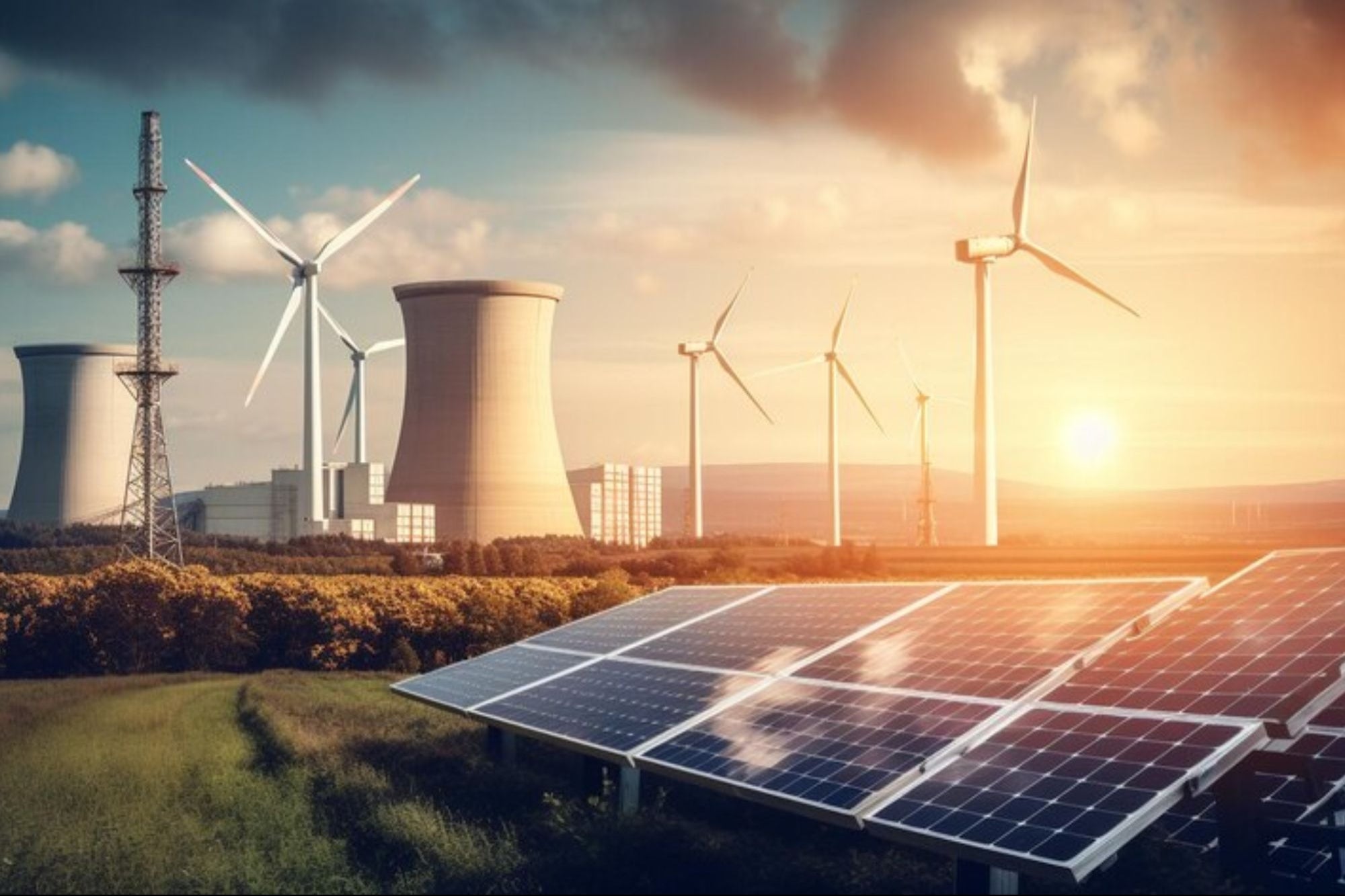Industries Need Systemic Transformation To Achieve Net Zero Emissions: Prabodha Acharya The world, specifically India, is going to see a very steep increase in the energy demand, accelerated due to heating and cooling demand in the backdrop of climate change that we must recognize, JSW Group Chief Sustainability Officer said.
Opinions expressed by Entrepreneur contributors are their own.
You're reading Entrepreneur India, an international franchise of Entrepreneur Media.

Transitioning to renewable power, electrification, and adoption of deep decarbonisation technologies, are key to the achieve net zero by 2070, JSW Group Chief Sustainability Officer Prabodha Acharya said on Wednesday.
He said that achieving net zero by 2070 will require a systemic transformation in how industries operate, emphasizing sustainability, innovation, and collaboration.
"Energy and process efficiency, transitioning to renewable power, electrification, adoption of deep decarbonisation technologies, circular economy practices, and logistics optimisation are key to the achievement of this goal. Alongside these, investing in innovation and R&D, stakeholder engagement and education, and collective action through policy advocacy and collaboration are crucial," Acharya told Entrepreneur India.
Recently the central government released a data saying the country has highest ever coal at thermal power plant to fulfil, electricity generation.
According to official statement, thermal power plants (TPPs) had coal stocks of over 45 million tonne on June 16, higher by 32 per cent as compared to the same day last year.
Speaking on the same, Acharya said that the world, specifically India, is going to see a very steep increase in the energy demand, accelerated due to heating and cooling demand due to climate change that we must recognise.
"Whilst the thermal energy is going to bear the baseload requirements in the interim, we must look out for alternate and new energy sources those are free of carbon, for example whilst we are focusing on increasing solar and wind, we have not explored yet the full role of Hydrogen, specifically geological hydrogen and fission technology. I believe, all energy sources would have its role to meet the human needs and we would find alternate clean sources to move away from thermal coal," he added.
Divulging on JSW Group's initiative towards sustainability, he said that the company is backed by 70 per cent renewable energy with 13.3 GW capacity. It stood at 70 per cent thermal in 2019.
When it comes to JSW Steel, the company has an ambitious target to run the Iron and steel operation with renewable energy by 2030 that requires around 10GW of installed capacity.
"Most of these energy need would be provided by JSW Energy. JSW Steel has already entered into a Power Purchase Agreement for procuring 958 MW of renewable power in FY22. Out of the total 958 MW of renewable energy power, solar capacity of 225 MW was commissioned at Vijayanagar in FY23, with the remaining 733 MW of wind power set to be progressively commissioned by FY25 across various plant locations," Acharya said.
JSW's plan to grow its capacity to 20 GW by FY30 is in line with India's renewable energy growth trajectory and has current locked-in power generation capacity of 13.3 GW, out of which 9.4 GW is renewable power.
Navigating it's path to become carbon neutral y 2050, the company has divided its decarbonization pathway into two phases, with Phase 1 beginning in 2020 and ending in 2030, and Phase 2 covering the period from 2030 onwards.
Phase 1 represents a short-term horizon to achieve decarbonization where most decarbonization technologies are not yet fully embedded in India. It acts as the foundation for further decarbonization initiatives which will take place during Phase 2.
"Strategies deployed include process and energy efficiency, energy transition to renewable sources, usage of alternative fuel sources, ensuring improved raw material quality, and enhancing material circularity, alongside pilot projects of deep decarbonization technologies," he said.
He further said that phase 2 represents a medium to long-term horizon where a more focused transition towards carbon neutrality takes place and deep decarbonization is achieved. "In this phase, we will primarily focus on four technological pathways - commercial deployment of green hydrogen for steelmaking, large scale implementation of carbon capture, utilisation and storage (CCUS), increased usage of scrap-based EAFs, and use of syngas & TGR in blast furnace," he added.
When we talk about sustainability and net zero, it becomes more important to mention SDG7, the 17 Sustainable Development Goals established by the United Nations General Assembly in 2015. However, in a recent report by IEA, it is mentioned that despite some progress across the indicators, the current pace is not adequate to achieve any of the 2030 targets for SDG 7.
Speaking on the lines, Acharya explained that the global electricity access deficit has reduced consistently, with India contributing significantly to this improvement. On average, an additional 94 million people gained a connection to electricity each year between 2020 and 2022. The vast majority of these connections can be traced to India, where the deficit dropped from about 49 million people lacking access in 2020 to just over 11 million in 2022.
Further, progress in the use of modern renewables has been significant, with India being one of the top drivers of growth. This growth was mostly possible thanks to the development of wind and solar PV, as well as a significant shift from traditional to modern uses of biomass. Moreover, biofuel support policies in India doubled renewable energy use in transport between 2015 and 2021 in the country.
However, despite these efforts, there still remains a lot to be done in order to achieve SDG7.
"The collective efforts of government, industry, financial institutions, and civil society will be crucial in ensuring that energy is affordable, reliable, sustainable, and accessible for all. Further scaling of renewable energy - through public and private investments, as well as policy support to encourage adoption, is crucial," he said.










